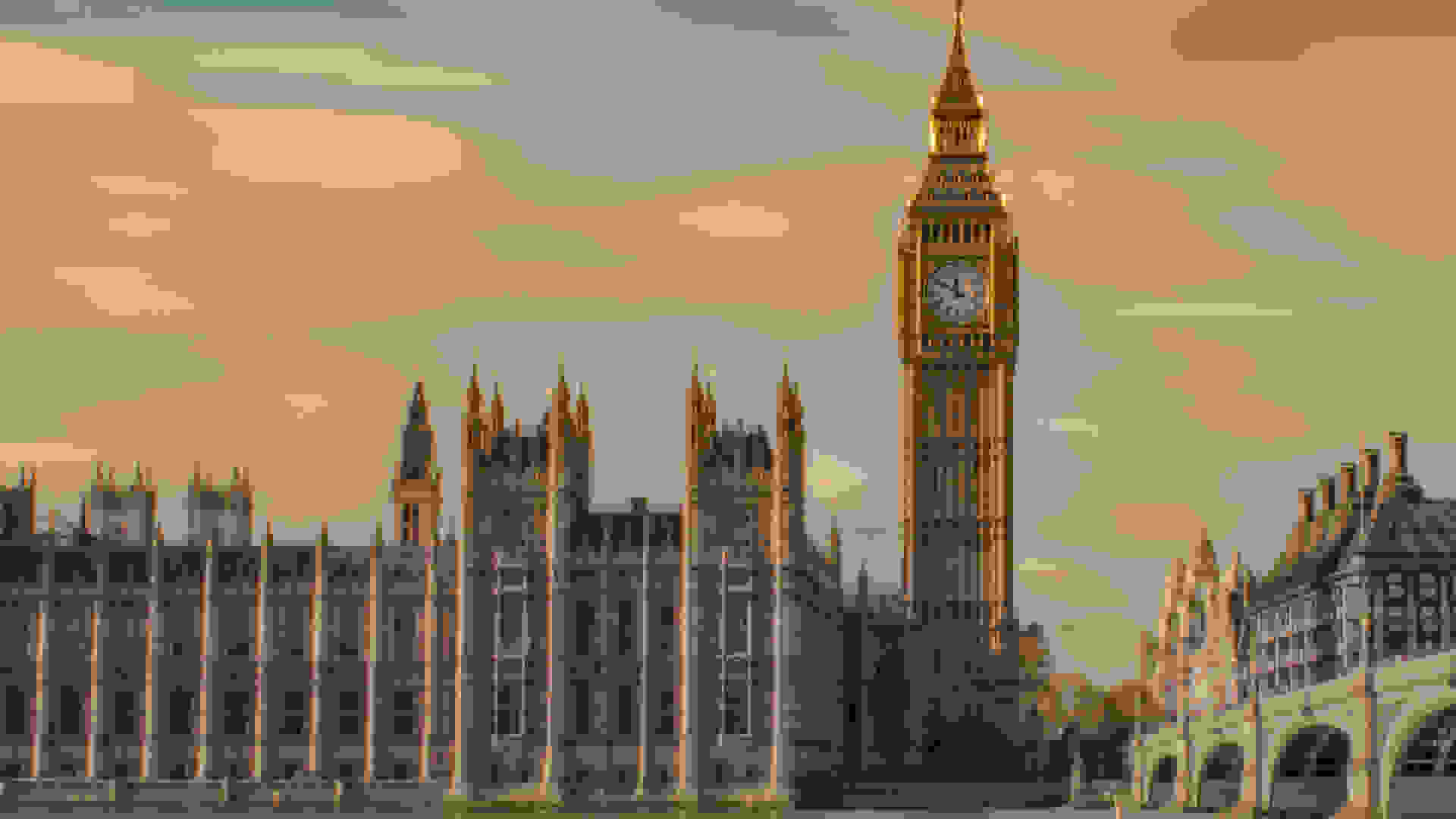Living on a prayer (motion): How do parliamentarians debate 'made negative' Statutory Instruments?
Fri. 14 Jan 2022
A recent House of Lords debate on a ‘made negative’ Statutory Instrument highlights Peers’ greater appetite and ability to secure such debates compared to MPs. Data on debate lengths suggests parliamentarians are more likely to give more meaningful scrutiny to SIs they wish to debate than those on which they are obliged to spend time by current procedures.


, Researcher
Dheemanth Vangimalla
Dheemanth Vangimalla
Researcher
Dheemanth joined the Hansard Society in July 2021 as a Researcher to contribute to the Review of Delegated Legislation. His role also involves supporting the day-to-day delivery of the Society’s legislative monitoring service, the Statutory Instrument Tracker®.
Dheemanth has a diverse professional background that includes experience in both the legal and non-legal sectors. He completed his MBBS degree at the University of East Anglia. He has since attained a Graduate Diploma in Law (GDL) while working full-time as a junior doctor at an NHS hospital trust. He has previously conducted legal research with the hospital’s legal services department. As a research assistant, he has also contributed to a public international law project concerning citizenship and statelessness. Additionally, he has experience conducting scientific and laboratory-based research during his BMedSci degree in Molecular Therapeutics at Queen Mary University of London.
, Researcher
Dr Tom West
Dr Tom West
Researcher, Hansard Society
Tom joined the Hansard Society in July 2021 and is focussed on its programme of work on how Parliament legislates, in particular being responsible for the co-ordination of its Delegated Legislation Review. Tom conducts research for the Society on legislative processes and procedures and supports its collaboration and partnership with other stakeholders and networks active in the field. Previously, Tom was employed at the UN in the secretariat of the Aarhus Convention Compliance Committee, an international law body tasked with assessing States’ compliance with their obligations relating to transparency, participation and justice in environmental decision-making. He has also given evidence to Parliamentary Committees and has engaged with the design and passage of new legislation through his role at environmental law NGO ClientEarth, where he led their work in response to Brexit. During that time he was a member of BIICL’s Expert Working Group on the EU (Withdrawal) Bill and the Rule of Law. Having first studied for a BSc in Mathematics at the University of Warwick, Tom then turned to law via an MSc in Law and Environmental Science and a PhD in international human rights and environmental law at the University of Nottingham, which he completed in 2017.
Get our latest research, insights and events delivered to your inbox
Share this and support our work
On 13 January, the House of Lords debated a motion tabled by Baroness Meacher ‘regretting’ an aspect of the Taking Control of Goods (Fees) (Amendment) Regulations 2021. These Regulations clarify the circumstances in which the VAT costs of fees and disbursements can be recovered from a judgement debtor. In the debate, Peers criticised the failure of the SI to deal with seven years of purported incorrect charging from 2014 to 2021.
The Statutory Instrument (SI) enacting these Regulations was laid by the Ministry of Justice on 18 November 2021, came into force on 9 December 2021, and is subject to the ‘made negative’ procedure.
An SI which is subject to the ‘made negative’ procedure does not require active parliamentary approval. A ‘made negative’ SI is laid before Parliament after it has been made – signed – into law by the Minister. If Parliament does not reject the SI within 40 days, it is deemed to have consented.
By contrast, SIs which are subject to the ‘affirmative’ procedure must receive active parliamentary approval and are by default debated.
The ’made negative’ is the most common SI procedure. During the 2019-21 Session, for example, 904 ‘made negative’ SIs were laid before Parliament, forming 65% of the total number of SIs laid.
While the ‘made negative’ procedure is suited for administrative and technical matters that parliamentarians are unlikely to wish to debate, many SIs subject to the procedure are not so anodyne. The ‘made negative’ procedure applies to some of the recent SIs used to tackle HGV driver shortages, for example, as well as the Coronavirus-related international travel restrictions; it is also used for many welfare and planning measures. These can be the subject of considerable interest among parliamentarians and affected stakeholders.
Parliamentarians can attempt to secure a debate and vote on a ‘made negative’ SI by tabling a ‘prayer’ motion to annul the instrument within 40 days of it being laid. If either House agrees such a motion, the government must revoke the SI, under section 5 of the Statutory Instruments Act 1946.
After the 40-day scrutiny period expires, any motion to reject a ‘made negative’ SI must be a motion that the SI be revoked (not annulled). The legal implications of a successful ‘revocation’ motion are yet to be tested.
In the House of Lords, as well as ‘prayer’ motions to reject an SI, Peers can also table ‘non-fatal’ motions which are critical of an SI, but do not seek to reject it. Examples include ‘take note’ and ‘regret’ motions. While such motions – if agreed – may have no legal consequences, they can have significant political ramifications.
There is no equivalent mechanism for ‘non-fatal’ motion debates in the House of Commons.
In the House of Lords, time is usually found to debate prayed-against SIs.
During the 2021-22 Session, as of 14 January 2022, five ‘made negative’ SIs had been the subject of ‘prayer’ motions tabled in the House of Lords. Three had been debated – on the Floor of the House, and before their 40-day scrutiny period expired. The two undebated Instruments were earlier iterations of one of the debated ones, all of them simply extending the life of the same policy.
Altogether, as of 14 January, in the 2021-22 Session the House of Lords has debated motions on 11 ‘made negative’ SIs (some of which were the subject of more than one motion).
In the House of Commons, no fixed parliamentary time is allocated to debate ‘prayer’ motions. Given that the government controls the Commons timetable (under Standing Order No. 14), whether an MP’s concern regarding a ‘made negative’ SI is ever debated depends on whether the government grants time (unless an opposition party were to use one of its Opposition Day debates). The government also controls when any ‘made negative’ SI is debated, and whether any debate takes place in a Delegated Legislation Committee (DLC) or in the Chamber.
The Leader of the Opposition is more likely than other MPs to be able to secure debates on ‘prayer’ motions, thanks to negotiation through the ‘Usual Channels’, but this leaves important doubts about other MPs’ abilities to secure debates.
As of 14 January, the only ‘made negative’ debate during the 2021-22 Session was held about an SI against which a ‘revocation’ motion had been tabled by the Leader of the Opposition. Four other ‘made negative’ SIs had ‘prayer’ motions tabled against them by other MPs, but none has been debated. The Leader of the Opposition has since tabled a ‘revocation’ motion against one of these SIs but it has not yet been scheduled for debate.
The discrepancy between the likelihood of debates being held on ‘made negative’ SIs in the House of Lords and the House of Commons is not new. During the 2019-21 Session, the House of Lords debated motions on 16 ‘made negative’ SIs. In contrast, in the House of Commons, 13 ‘made negative’ SIs were prayed against, but only eight debated. Furthermore, five of these were only debated after the 40-day scrutiny period had elapsed, and three had their debates squeezed in at the end of the Session. Only one ‘made negative’ SI was debated following a prayer motion tabled by an MP other than the Leader of the Opposition (SNP Westminster leader Ian Blackford MP).
The government’s control of time in the House of Commons stands in inherent tension with the statutory provision for parliamentary accountability for the government’s use of ‘made negative’ SIs. The ‘made negative’ procedure has its place: there is no need for all SIs to have active parliamentary debate and approval. However, parliamentarians must have a reasonable prospect of being able to debate ‘made negative’ SIs that concern them, in a timely fashion, in line with the relevant statutory provisions.
While it is a somewhat blunt measure, the time spent on a debate gives some indication of the level of parliamentary interest in an SI.
We have analysed the lengths of all delegated legislation debates that took place in both Houses during the 2019-21 Session. Some of these debates were on more than one SI.
The House of Commons spent a median time of 70 minutes on ‘made negative’ SI debates. In contrast, the House spent a median time of 20 minutes debating SIs which were subject to the ‘affirmative’ procedure.
A similar pattern is apparent in the House of Lords. The House spent a median time of 76 minutes debating ‘made negative’ SIs, compared to a median time of 46 minutes for ‘affirmative’ SIs.
For ‘made negative’ SI debates, the shortest debate lasted approximately 25 minutes in the Commons and 41 minutes in the Lords. In comparison, on ‘affirmative’ SIs, there were 37 debates that lasted 10 minutes or less in the Commons, and seven in the Lords.
This difference in debate lengths may indicate that parliamentarians are more likely to give more meaningful scrutiny to Instruments that they actually wish to debate, compared to ones that they must debate regardless of the level of interest or controversy they attract.
This may be as true in the Lords as it is in the Commons.
However, scrutiny procedures are generally set out in the parent legislation and may therefore have been determined years before an SI appears. The current approach to SI scrutiny means that MPs may be required to spend time debating uncontroversial ‘affirmative’ SIs that are of little political relevance, but struggle to secure timely debates on ‘made negative’ SIs that are of concern to them or their constituents.
The data presented here demonstrates the potential value of reforming the current system so that parliamentarians have greater control over the scrutiny process that applies to a Statutory Instrument, and so can focus their time and attention on those SIs that matter most.
More
Related
Blog / The care placement Regulations and the courts: too many holes in the net of parliamentary scrutiny?
A forthcoming judicial review on children-in-care highlights parliamentarians' inability to challenge only certain aspects, rather than the whole, of a Statutory Instrument. Courts can and do provide an important backstop against unlawful use of delegated powers, but this does not diminish the need for better parliamentary oversight of delegated legislation.
Blog / Coronavirus Act renewal: Into the sunset?
How does the Coronavirus Act renewal process which is due to take place on 19 October work? How important is the Act in the overall legislative response to the pandemic? And what might MPs take from the process for the delegation of powers in future Acts?
Blog / The Health and Social Care Levy Bill: four questions about scrutiny and accountability
The Health and Social Care Levy Bill is being rushed through all its House of Commons stages in just one day on 14 September, only a week after the policy was announced. Before MPs approve the Bill, four important questions about scrutiny and accountability need answering.
Blog / What is the aim of parliamentary scrutiny of delegated legislation?
Several parliamentary committees scrutinise delegated powers and delegated legislation. But what is the aim of this scrutiny, what standards are applied, and what are the value and limits of Parliament's role in this aspect of the legislative process?
Articles / In the rush to prepare for Brexit, parliamentary scrutiny will suffer
The cancellation of this week's House of Commons recess provided the government with an extra few days to hold debates on affirmative Brexit SIs. But the low number of debates makes it a wasted opportunity. The government can get its Brexit SIs into force by 29 March, but probably only at the expense of what limited scrutiny already takes place for SIs.
Blog / Trade Bill highlights Parliament's weak international treaty role
The Trade Bill raises concerns about delegated powers that also apply to the EU (Withdrawal) Bill, and need to be tackled in a way that is consistent with it. The Trade Bill also highlights flaws in Parliament's role in international agreements. In trade policy, Brexit means UK parliamentarians could have less control than now, whereas they should have more.
Blog / 'Bonfire of the quangos' legislation fizzles out
The forthcoming Great Repeal Bill will be the most prominent piece of enabling legislation since the controversial Public Bodies Act 2011.
Blog / "You can look, but don't touch!" Making the legislative process more accessible
Can technology help change the culture and practice of parliamentary politics, particularly around the legislative process?
Events / Future Parliament: Hacking the Legislative Process // Capacity, Scrutiny, Engagement
From finance to healthcare, technology has transformed the way we live, work and play, with innovative solutions to some of the world’s biggest challenges. Can it also have a role in how we make our laws?
Reports / Measured or Makeshift? Parliamentary Scrutiny of the European Union
In this 2013 pamphlet, leading politicians, commentators and academics set out growing concerns that parliamentary scrutiny of EU business at Westminster was inadequate, questioned whether there was a democratic deficit at the heart of the UK's relationship with the EU, and canvassed ideas for reform of Parliament's EU engagement.
Latest
Guides / Financial Scrutiny: the Budget
In order to raise income, the government needs to obtain approval from Parliament for its taxation plans. The Budget process is the means by which the House of Commons considers the government’s plans to impose 'charges on the people' and its assessment of the wider state of the economy.
Guides / Financial Scrutiny: the Estimates Cycle
In order to incur expenditure the government needs to obtain approval from Parliament for its departmental spending plans. The annual Estimates cycle is the means by which the House of Commons controls the government’s plans for the spending of money raised through taxation.
Data / Coronavirus Statutory Instruments Dashboard
The national effort to tackle the Coronavirus health emergency has resulted in UK ministers being granted some of the broadest legislative powers ever seen in peacetime. This Dashboard highlights key facts and figures about the Statutory Instruments (SIs) being produced using these powers in the Coronavirus Act 2020 and other Acts of Parliament.
Briefings / The Economic Crime (Transparency and Enforcement) Bill: four delegated powers that should be amended to improve future accountability to Parliament
The Bill seeks to crack down on ‘dirty money’ and corrupt elites in the UK and is being expedited through Parliament following Russia’s invasion of Ukraine. This briefing identifies four delegated powers in the Bill that should be amended to ensure future accountability to Parliament.
Articles / Brexit and Beyond: Delegated Legislation
The end of the transition period is likely to expose even more fully the scope of the policy-making that the government can carry out via Statutory Instruments, as it uses its new powers to develop post-Brexit law. However, there are few signs yet of a wish to reform delegated legislation scrutiny, on the part of government or the necessary coalition of MPs.